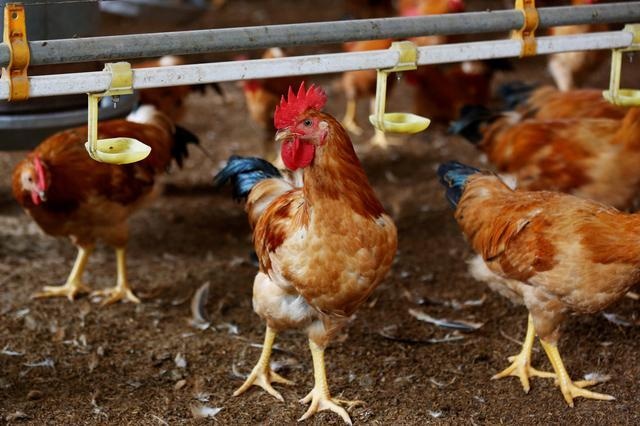Reeling from coronavirus, Asia's poultry farmers battle bird flu outbreak
- More than 20 million chickens have been destroyed in South Korea and Japan since November
- While bird flu is common in Asia at this time of year due to migratory bird patterns, new strains of the virus have evolved to become more lethal in wild birds
(Tokyo) Asia’s chicken farmers are confronting the region’s worst bird flu outbreak in years, with the deadly virus affecting farms stretching from Japan to India, roiling some poultry prices and showing no signs of easing.
More than 20 million chickens have been destroyed in South Korea and Japan since November. The highly pathogenic H5N8 virus last week reached India, the world’s No. 6 producer, and has already been reported in 10 states.
While bird flu is common in Asia at this time of year due to migratory bird patterns, new strains of the virus have evolved to become more lethal in wild birds, making countries on flight pathways particularly vulnerable, say experts.
“This is one of the worst outbreaks ever in India,” said Mohinder Oberoi, an Indian animal health expert and former advisor to the U.N.’s Food and Agriculture Organization (FAO).
“There’s a lot of disease in crows and ducks. People are scared of the disease in crows. They know they fly far and think they’ll infect their poultry or even people.”
The Asian outbreak comes as Europe suffers its worst bird flu outbreak in years, and follows on the heels of COVID-19, which hurt poultry sales early on in some places amid false disease concerns but is now driving up demand due to more home cooking.
Chicken prices in India fell almost a third last week as wary consumers, increasingly nervous about disease since the pandemic, steered clear of the meat.
Bird flu cannot infect people through poultry consumption, and the H5N8 virus is not known to have ever infected humans, but consumers are still fearful, said Uddhav Ahire, chairman of Anand Agro Group, a poultry company based in the western city of Nashik.
Live chicken prices are already as low as 58 Indian rupees ($0.79) a kilogram, below the cost of production, he said.
In South Korea and Japan, no market impact has been seen yet, officials said, with stronger demand for chicken meat for home cooked meals during lockdowns having a greater effect on prices.
The rapid and wide geographic spread of the latest outbreaks make this one of the worst waves in Asia since the early 2000s.
In Japan, where outbreaks have been reported from Chiba near Tokyo to more than 1,000 km (620 miles) away in Miyazaki on Kyushu island in just two months, fresh cases are still occurring.
“We can’t say risk of the further spread of bird flu has diminished as the migration season for wild birds will continue till March, or even April in some cases,” said an animal health official in the agriculture ministry.






















Comments
Comments are closed.